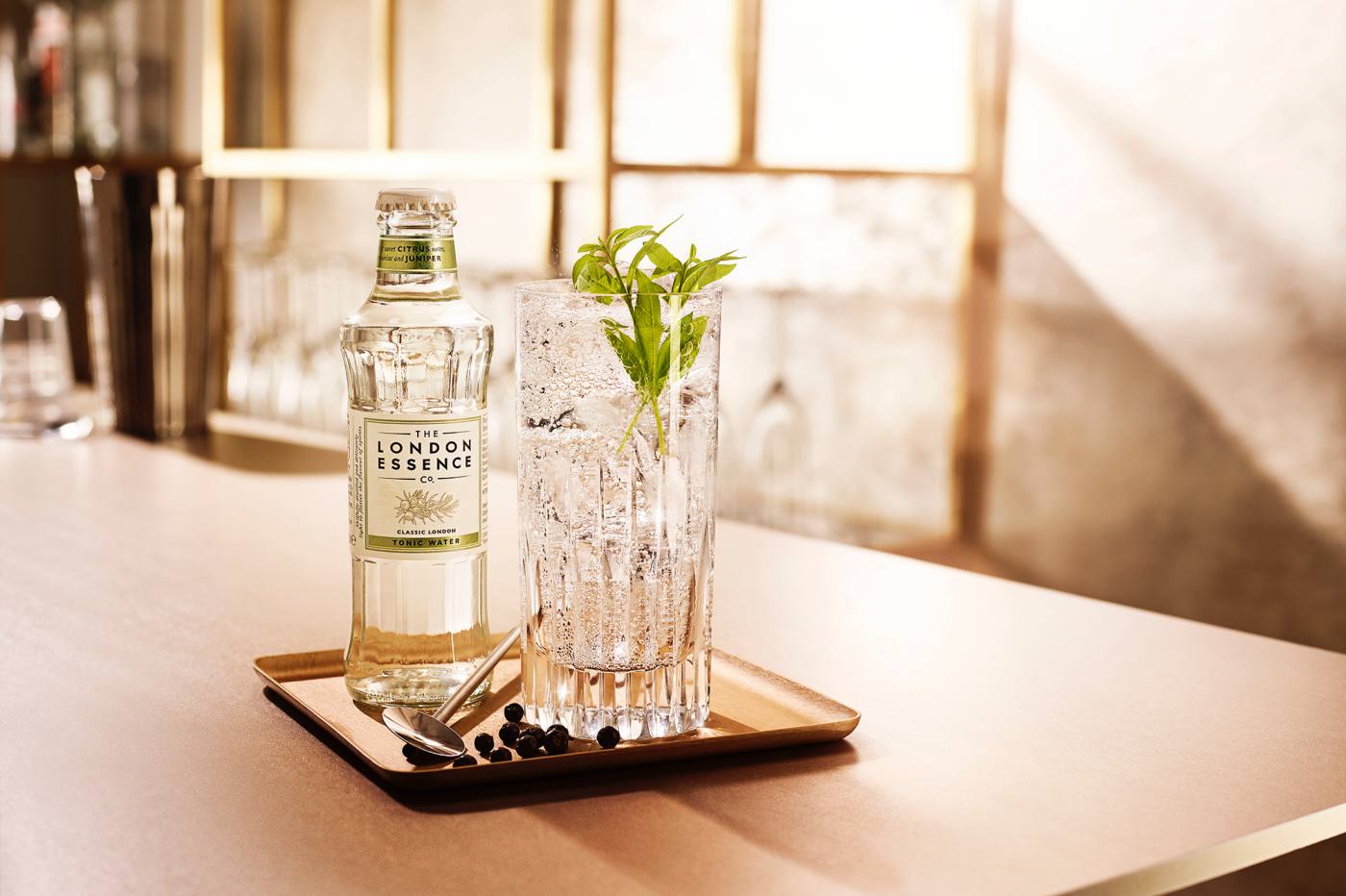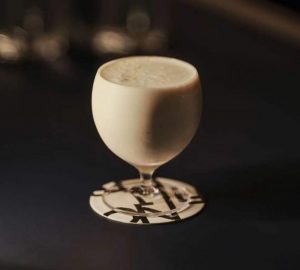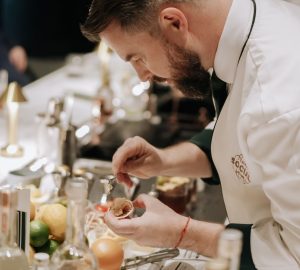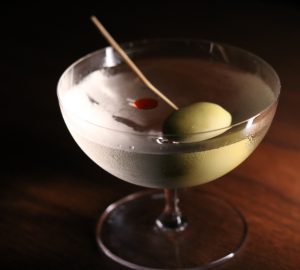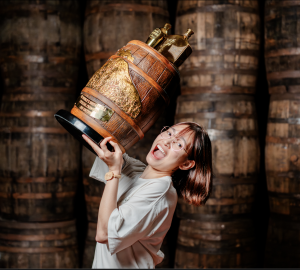This article is sponsored by the London Essence Co.
The London Essence Co draws on specialist flavour extraction know-how to deliver a new range of premium mixers.
Established in 1896 and refreshed in 2016, London Essence Co is the first range of premium mixers to be delicately light and skilfully distilled. Crafted from fine fruits, herbs, spices and flowers, its three tonics and one ginger ale each contain a different distilled essence to deliver distinctive signature notes. They also contain half the sugar of most other premium tonic brands on the market.
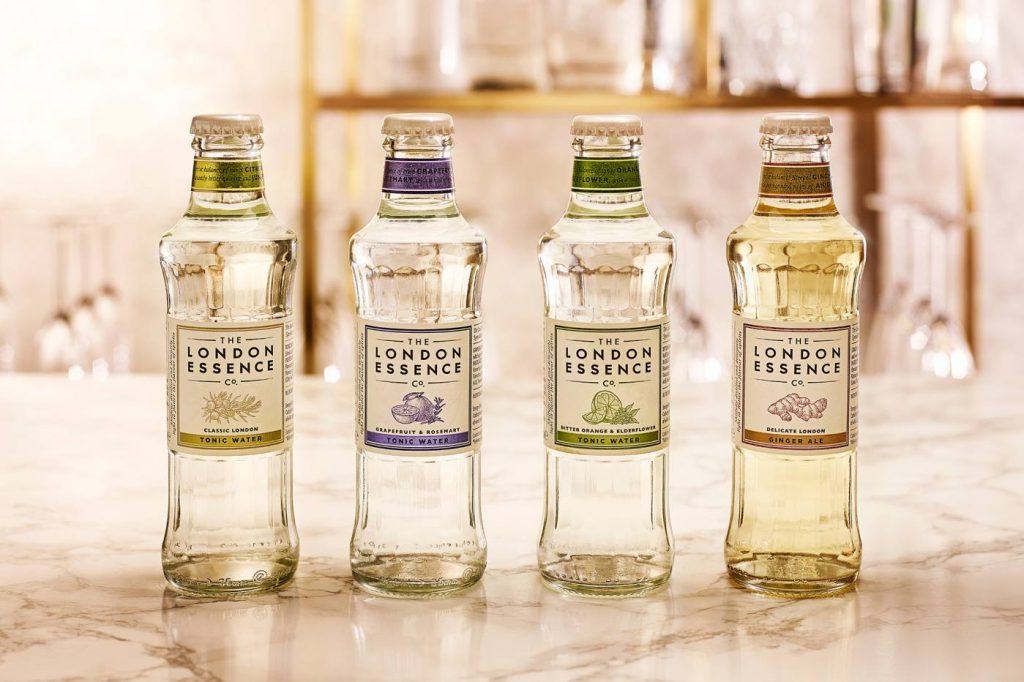
The key to balancing bitterness, sweetness and botanical aroma is a detailed understanding of essences. At the London Essence Co, specialists in the art of flavour extraction – through distillation, cold pressing or infusion – craft each London Essence Co mixer through four stages, so production can be tailored according to the signature notes being captured in the final drink. “With each mixer, the team go through all the different processes and techniques for each ingredient to see which one delivers the best flavour extract,” says Sam Wong, Asia Pacific brand ambassador for London Essence Company.
Here’s how London Essence Co mixers are created:
1 To begin, filtered water from Cumbria (home to the England’s Lake District) is mixed with fructose sugar and a touch of stevia (a sugar substitute naturally extracted from the Stevia rebaudiana plant), to create a light base with just 20 calories per 100ml (across all mixers). They then balance the sweetness by adding citric acid, to add a touch of sharpness. Next comes the quinine from cinchona bark, which is the key ingredient for any tonic, providing the familiar bitter note. However, LEC prefers not to deliver that overwhelming bitterness sometimes present in other tonics. “For example, with our Classic London Tonic, it’s juniper forward not quinine forward, compared to other tonics,” says Wong. “That helps elevate the flavour of the gin.”
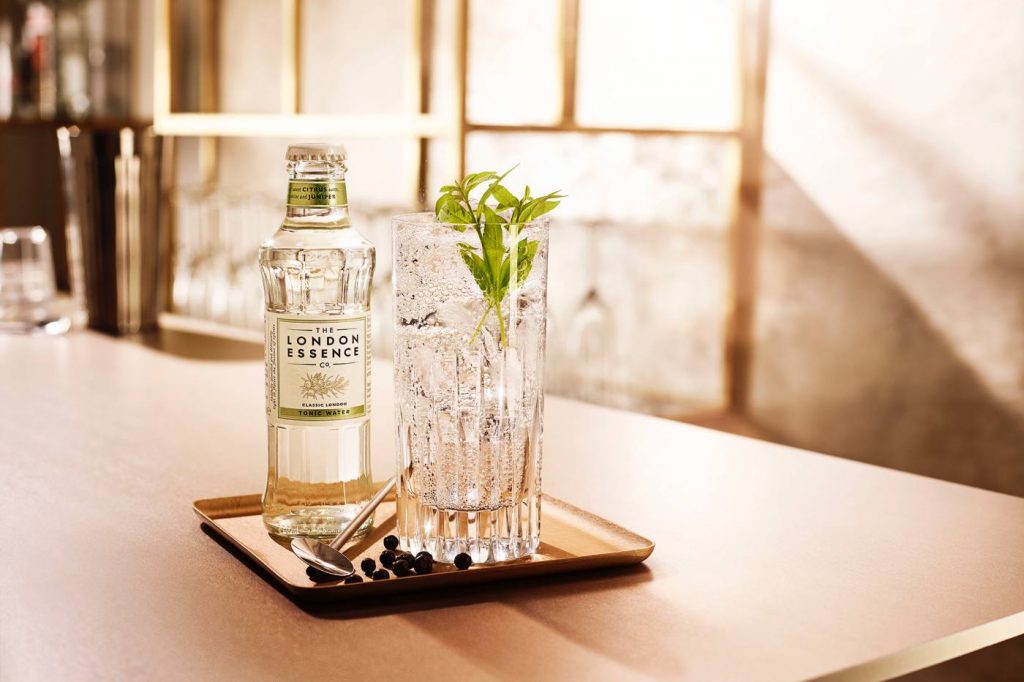
2 Next, LEC adds a sharp, sweet zing with tailored citrus blends – each one specifically designed for each of the three different tonics, to help enhance the distillate flavours that follow. “These citrus blends are definitely part of the flavour, not just about balancing off the sweetness. Different citrus enhances the character of each distillate.”
For the Classic London tonic the blend consists of Sicilian lemon peel extract, lime oil natural flavouring and a chinotto flavour blend (a blend of the orange’s peel and oil). For the Grapefruit and Rosemary tonic, the citrus blend is replaced by white grapefruit oil, cold-pressed to best capture the fresh zing of the fruit. Finally for the Bitter Orange and Elderflower, the citrus element comes from a more complex combination of Italian bitter orange tincture, blood orange oil and gentian extract.
Each one is processed differently. For Sicilian lemons, blood oranges and bitter oranges, for example, the peels are steeped in water and ethanol and gently heated. After cooling, the extracts are gently separated through filtration, siphoning or centrifuge. For the limes, white grapefruit and chinotto oranges, these are cold pressed because this best releases the freshness of the oil’s flavour. For the gentian, the root is steeped in water and ethanol, gently heated, then filtered to create a rich and complex extract. “The Bitter Orange and Elderflower has a nice citrus note on the front, then the subtle flower note, then at the end you get a lovely bitter note. This makes sure it lingers in your mouth a bit longer – just enough to make you want to drink again.”
3 Next, each tonic is further distinguished through the addition of a signature distillate – for example, juniper for the Classic London tonic. Each botanical is handled slightly differently on account of the plant or flower’s different aromatic qualities. For juniper, distillation means heating the ingredients at a low temperature, so not to “cook” the botanical, delivering the full range of the berry’s aromatics. For the Grapefruit and Rosemary tonic, the rosemary is also extracted via steam distillation in a swan’s neck still, although without prior steeping. “The flavour is more delicate on the Grapefruit and Rosemary than the other two – and very dry – making it perfect as a soft drink alternative to cocktails,” says Wong. “But none of the tonics overwhelm the gin – they really let the different characters of the spirit shine through.”

And for the London Essence Co’s Ginger Ale, as well as the ginger distillate extracted to form the base, the final profile is enhanced with the addition of fennel and aniseed distillates. “Our ginger ale is also dryer and more subtle than others on the market. It really respects your whisky, enhancing the flavours instead of masking them.”

4 The fourth stage is carbonation… although the final act is left to you: blending with your favourite spirit, or drinking alone as a grown-up “zero-proof” alternative to alcohol.
For more information visit londonessenceco.com. London Essence Co tonics and ginger ale are available from: Singapore, Tuck Lee (+65 1800 222 3777, marketing@tucklee.com, tucklee.com); Hong Kong, Brand Connect, (+852 9722 4640, hkorders@bra


